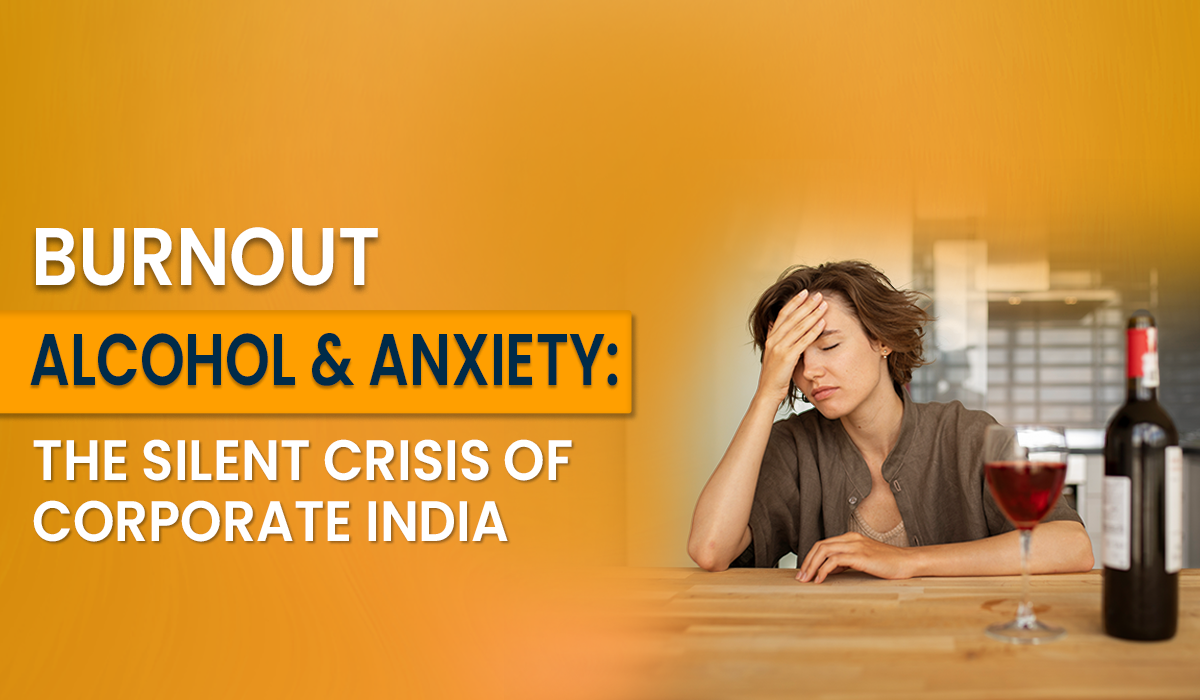While coping with different addiction-related concerns such as substance use addiction, drug addiction and gambling addiction, relapse in recovery is commonly observed. Relapse in recovery can influence an individual’s professional as well as personal life. The treatment process should involve relapse prevention strategies to minimise the chances of relapse in recovery.
Relapse should not be seen as a failure; instead, it can be perceived as an opportunity to expand one’s skills and increase one’s resilience. One may experience physical relapse or emotional relapse, but the right support can help overcome it with ease!
What Is a Relapse?
Relapse can be described as a situation in which the past unhelpful behaviour is recurring despite working on it. It is often observed in addiction-related concerns and it can occur due to a vast variety of reasons. Together, one of the many goals of the client and mental health professionals is to plan the treatment in a way that relapse can be prevented.
Understanding Relapse in Recovery
Relapse in recovery is an essential part of the entire addiction recovery journey. Some possible reasons that can increase the chances of relapse include:
- Peer pressure that encourages unhelpful past behaviour
- Lack of social support for maintaining well-being
- Unresolved emotional concerns from the past
- Extreme stressful situations and difficulty coping
- Having unrealistic expectations from the recovery timeline
Seeing Relapse as Part of Healing
Life has a lot of ups and downs; similarly, even the recovery journey is not always linear. Experiencing relapse can be difficult for the individual as well as the family members. Coping with this difficult time may not be easy but it is possible. It can become a little easier as one acknowledges relapse as a commonly observed part of the recovery journey.
The Growth Mindset Shift
- Perceiving relapse as constructive feedback instead of as individual failure
- Healing journey can have some setbacks and it is possible to overcome those
- Relapse is also a reminder of how far you had already come and your ability to achieve other goals
- At the time of relapse, one should be mindful that instead of engaging in negative self-talk, one can explore a growth mindset.
Practical Steps to Bounce Back After Relapse
As one tries to navigate through the mental relapse, physical relapse, etc, the path ahead may look blurred. An attempt has been made to clear that blurred path through some practical steps mentioned below for overcoming relapse.
Step 1 — Pause and Reflect Without Judgment
One may have a lot of different feelings, such as disappointment, hurt and sadness as one experiences relapse. During that emotional storm, remember:
- You are a human
- Take deep breaths
- Be kind to yourself
Step 2 — Reach Out for Support
You can reach out to:
- Psychologist
- Psychiatrist
- Family members
- Friends
- Support groups
Step 3 — Rebuild Your Routine
Relapse may hamper one’s routine, so a genuine reflection and simple activities like a to-do list, daily activity charting, etc, can also be extremely useful.
Step 4 — Strengthen Relapse Prevention Skills
Relapse prevention skills involve a lot of techniques such as cognitive therapy, follow-up sessions with professionals and becoming more observant of one’s behaviour. Exploring multiple coping skills and finding out the one that is the best for oneself is crucial as one is stepping on relapse prevention journey.
Step 5 — Celebrate Progress, Not Perfection
On your relapse prevention journey, remember to celebrate all your efforts. Cognitive therapy is a modality that also helps in exploring unhelpful thoughts that may prevent one from celebrating the efforts and instead only waiting for results.
The Role of Professional Support in Recovery
Professional support for relapse prevention can be sought from:
- Psychiatrists
- Clinical Psychologists
- Counselling psychologists
- Expressive art therapists
- Support groups
Therapy and Counselling
Here are some benefits of seeking therapeutic support:
- Increased self-awareness
- Exploration of goals
- Regular follow-up sessions
- Systematic and structured guidance
- Evidence-based techniques
Building Accountability and Community
Your mental health can improve as you decide to work on it and take steps to better well-being. There are also a lot of support groups that can help the individual acknowledge their concerns, learn about others’ life experiences and share their own in a safe space.
When to Seek Immediate Help
Some situations when seeking immediate help becomes essential are:
- Thoughts regarding harming self
- Thoughts regarding harming others
- Extreme unhealthy cravings or urges
- Loss of control over emotions, thoughts, and behaviour
Maintaining Long-Term Healing
You deserve a healthier well-being and a better quality of life. These goals can be achieved through consistency in working on one’s mental wellness goals. Once one has achieved these goals, the next step becomes maintaining wellness at the optimal level. Efforts may be needed to maintain that, and each person may take efforts in their own unique ways.
Create a Personalized Recovery Plan
Here are the advantages of using an individualised treatment plan:
- It is based on your specific needs and goals
- The coping strategies used work well for you
- Your preferences are also included in this plan
Focus on Self-Care and Balance
You can try engaging in self-care activities through the following ways:
- Take out time for your relaxation
- Include hobbies in your daily routine
- Seeking professional help when needed
- Being kind and compassionate to self
Remember the Bigger Picture
As one tries to manage both relapse and recovery, there may be moments of extreme distress. During those challenging times, remind yourself of your long-term goals to keep self-motivated. The bigger picture usually involves an individual’s specific mental health goals and how achieving those goals can also pave the way to achieve other life goals!
Conclusion
Addiction-related concerns are becoming increasingly common these days. Navigating through relapse and recovery can be an emotionally taxing experience. At Athena Luxus we aspire to offer the best possible mental health services for addiction, along with a relapse prevention plan.
If you have any queries regarding our services, then you can connect with us at 9718921212 or customercare@athenabhs.com and our team will try to help you navigate through this journey.



